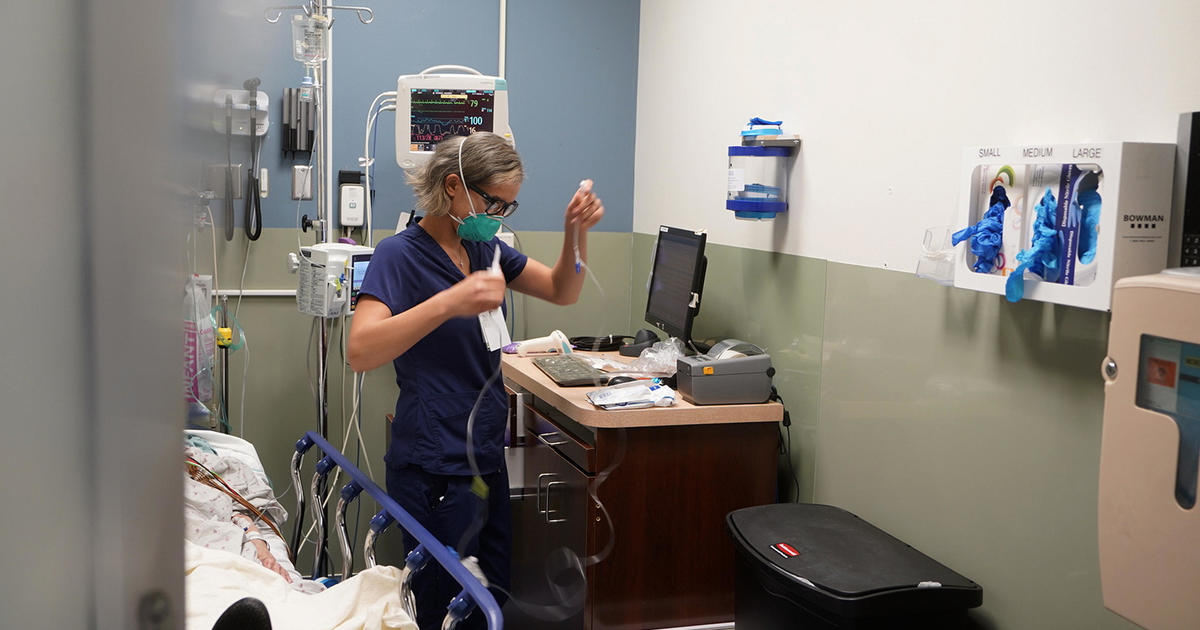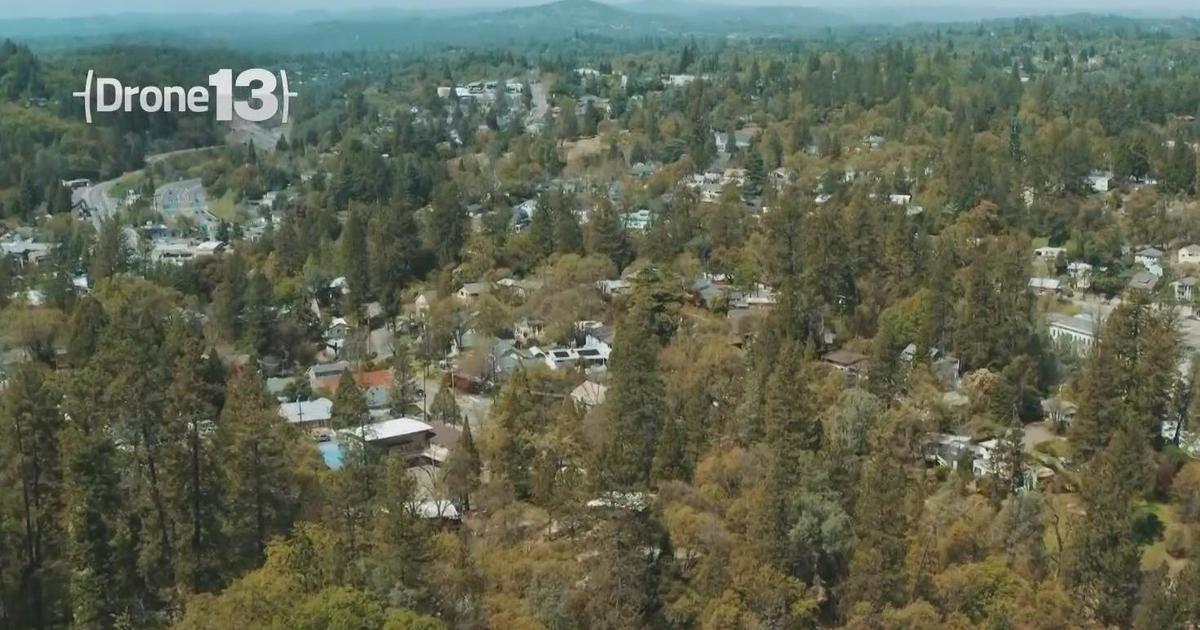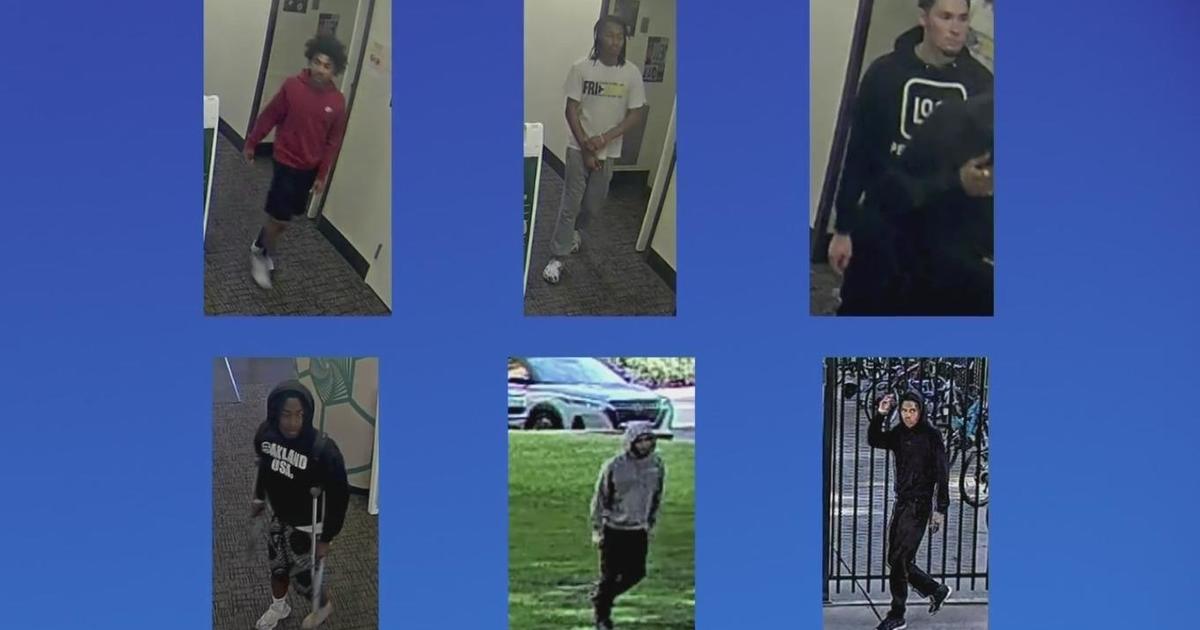California Eyes First-In-Nation Firearms Restraint
SACRAMENTO (AP) - California could become the first state to allow family members, licensed therapists and health care providers to petition a judge to take firearms from someone who has shown signs that they could harm others or themselves.
California's bill, AB1014, was prompted by an attack in May that left six people, including the student attacker, dead in Isla Vista, near the University of California, Santa Barbara. It will be heard Monday in a Senate committee as state lawmakers return from a monthlong summer recess.
Long before Elliot Rodger went on his violent rampage, his parents were worried about the mental state of their 22-year-old son. In April, their concern grew so strong that they had his therapist contact Santa Barbara County mental health officials.
Sheriff's deputies talked to him and decided he was not a threat to himself or others. They weren't required to investigate further and didn't. Had they searched his room, they might have found guns that police said he used on May 23 to fatally shoot three people after stabbing to death three others.
He killed himself while being pursued by police.
Connecticut, Indiana and Texas already have laws that let law enforcement seek to seize guns from people they deem to be a danger. In California, legally purchased guns can only be seized by authorities from people convicted of a felony or a violent misdemeanor; people subject to a domestic violence restraining order; or those who are determined to be mentally unstable.
"We know many cases of suicide or violence against others where the family member was the first to see the warning signals, the danger signs, and yet they were really somewhat helpless to do anything about it," said Assemblywoman Nancy Skinner, D-Berkeley, who proposed the bill with Assemblyman Das Williams and Sen. Hannah-Beth Jackson, two Democrats from Santa Barbara.
The bill is among hundreds of measures lined up for legislators to consider before their Aug. 31 deadline to pass bills. They also will consider putting bond measures on the November ballot to support schools and the state's water infrastructure; whether to ban disposable plastic bags and plastic microbeads in soaps and cosmetics; expanding aerospace tax credits to build the next generation of stealth bombers in California; and perhaps legalizing online poker.
Another bill by Jackson, SB505, would require law enforcement officers to check state firearms records as part of routine welfare checks. Last year, Gov. Jerry Brown vetoed a bill that would have banned future sales of most semi-automatic rifles that accept detachable magazines, while signing bills that further restricted gun ownership by mentally ill people and banning kits that allow people to turn regular ammunition magazines into high-capacity magazines.
The Consortium for Risk-Based Firearm Policy, which includes mental health and public health professionals and is associated with the nonprofit Educational Fund to Stop Gun Violence in Washington, D.C., first recommended last year that states allow firearm restraining orders such as the ones outlined in AB1014.
It would also help in cases where laws allowing involuntary hospitalization of mentally ill people can't be used, said Dr. Amy Barnhorst, a University of California, Davis professor and psychiatrist who works with a psychiatric crisis unit in Sacramento. She said most violence is caused by people who are not mentally ill, such as "an angry guy who's prone to rages when he fights with his wife."
Sam Paredes, executive director of Gun Owners of California, said the bill is flawed, but not because it would interfere with gun owners' rights.
"It's stopping people who we all agree should not be around guns," Paredes said. Yet the bill "has a huge, gaping hole" in it because it would take too long to be effective, he said.
Days might pass before a family member or professional fills out the proper forms, persuades a judge to act and a law enforcement agency sends an officer to seize weapons. Moreover, the owner would get his guns back once the restraining order expires in a year, Paredes said.
It would be better for families to seek an immediate involuntary mental health commitment under existing California law, which can result in a five-year ban on gun possession if the owner is found to be dangerous, Paredes said. The owner could face a lifetime prohibition under federal law in some circumstances.
In Rodger's case, there's no evidence his parents or anyone treating him knew he had weapons. Police who visited him could have sought an involuntary commitment had they seen evidence that he could be dangerous. They say they didn't.
Under the California bill, whoever seeks the restraining order would have to sign an affidavit under oath. If they lie, they could be charged with a misdemeanor. A court hearing would be held within 14 days after the restraining order is granted to give the gun owner a chance to argue there is no danger.
The bill would be helpful but not a panacea, said Adam Winkler, a UCLA law professor and expert on gun laws.
"Let's be realistic. It's not going to have a massive impact on gun crime or even mass killing," he said. "But it could be another tool."
Copyright 2014 The Associated Press.



